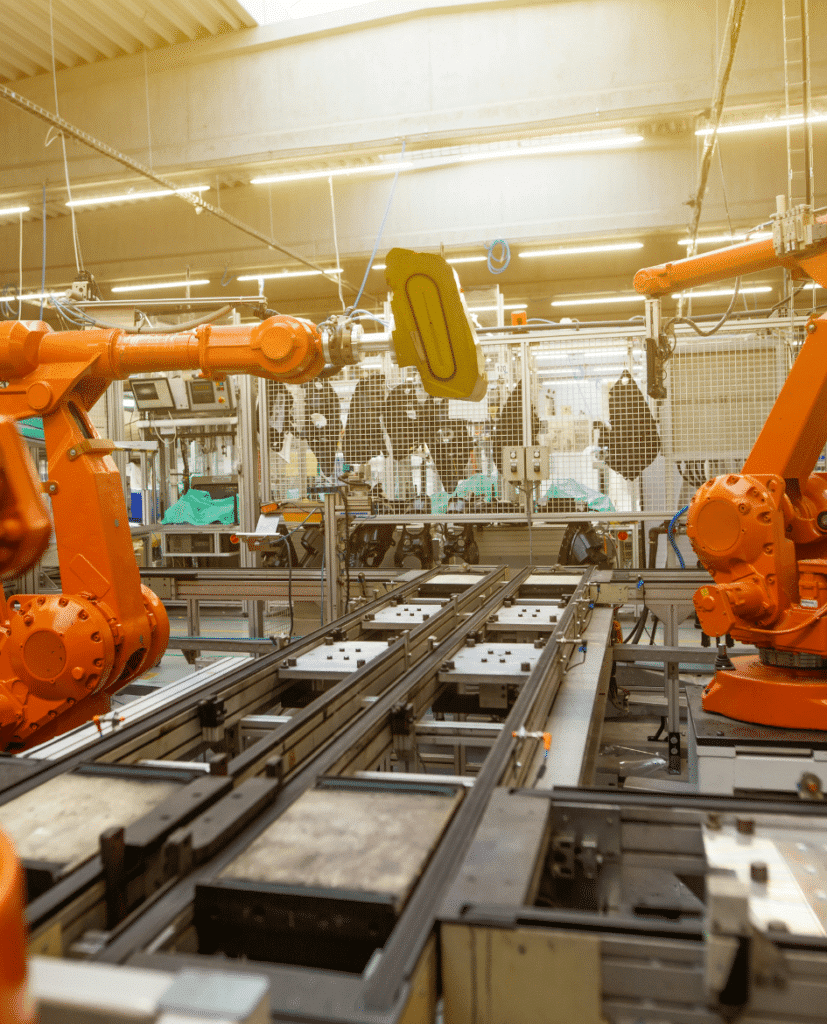At NAOS International, a leader in executive search, we have profound expertise in recruiting executive leaders for the Industry and Engineering sectors.
Understanding the specificities of these fields is crucial to us. That’s why our dedicated team possesses a sharp understanding of the technical, operational, and cultural requirements prevailing in these sectors. Our targeted recruitment approach, coupled with an extensive talent database, enables us to identify qualified leaders with practical experience in complex industrial environments.
Each search is customized to align with your unique company needs. Our close collaboration approach ensures a seamless integration of candidates into your leadership team. Trust NAOS International for successful recruitment in the Industry and Engineering sectors because our commitment is to provide the leaders who will contribute to your company’s growth in these demanding fields.

Industry insights
“The industry and engineering sector in France and Europe is undergoing a profound transformation, marked by unprecedented challenges and opportunities. In 2024, the manufacturing industry, a cornerstone of the European economy, faces a convergence of technological, economic, and ecological trends that are reshaping its landscape.
Digitalization and Automation
Digitalization and automation continue to reshape the industrial landscape. The implementation of Industry 4.0 is accelerating, with increasing adoption of Internet of Things (IoT) technologies, artificial intelligence (AI), and digital twins. These innovations significantly enhance productivity and flexibility in production lines while reducing costs and lead times.
Companies like Schneider Electric and Siemens are leading the way by providing advanced digitalization solutions, enabling factories to achieve unprecedented levels of operational efficiency. Meanwhile, SMEs are gradually adopting these technologies to remain competitive in an ever-evolving market.
Ecological Transition
The climate emergency demands a radical transformation of industrial practices. Decarbonizing production processes has become a priority, with initiatives aimed at reducing carbon footprints and promoting a circular economy. Solutions such as green hydrogen and renewable energies are at the heart of this transition.
In France, the National Low-Carbon Strategy (SNBC) guides industries towards more sustainable practices. Major groups like ArcelorMittal and TotalEnergies are investing heavily in decarbonization and carbon capture projects. Innovations in sustainable materials and advanced recycling technologies also play a crucial role in this transition.
Resilience and Industrial Sovereignty
The COVID-19 pandemic highlighted the vulnerability of global supply chains and reinforced the need for increased industrial sovereignty in Europe. Relocating production and diversifying supply sources have become key strategies to ensure industrial resilience.
The France Relance Plan and the European initiative on technological sovereignty aim to strengthen local production capacities, particularly in strategic sectors such as semiconductors, batteries, and pharmaceuticals. Companies like STMicroelectronics and Renault are central to these efforts, with significant investments in local infrastructure.
Innovation and Skills
Innovation remains the driving force behind industrial competitiveness. France and Europe are investing heavily in research and development (R&D), supporting cutting-edge sectors like robotics, nanotechnologies, and biotechnologies. Collaboration between universities, research centers, and businesses is essential to maintain a constant flow of innovations.
At the same time, the demand for skills is evolving. Continuous training and the development of digital skills are crucial to prepare the workforce for new technological requirements. Initiatives such as École 42 and apprenticeship training programs help bridge the skills gap and prepare the next generation of engineers and technicians.
Future Prospects
The industry and engineering sectors in France and Europe are on the brink of an industrial renaissance. Challenges related to digitalization, ecological transition, supply chain resilience, and skills development outline an ambitious roadmap for the coming years. Leveraging a robust innovation ecosystem and proactive industrial policies, France is well-positioned to maintain its status as a global leader in the industrial sector.
The future of French industry relies on its ability to innovate, adopt sustainable practices, and strengthen its industrial sovereignty. Collaboration between the public and private sectors will be crucial to overcoming challenges and seizing opportunities, ensuring sustainable and resilient growth.”